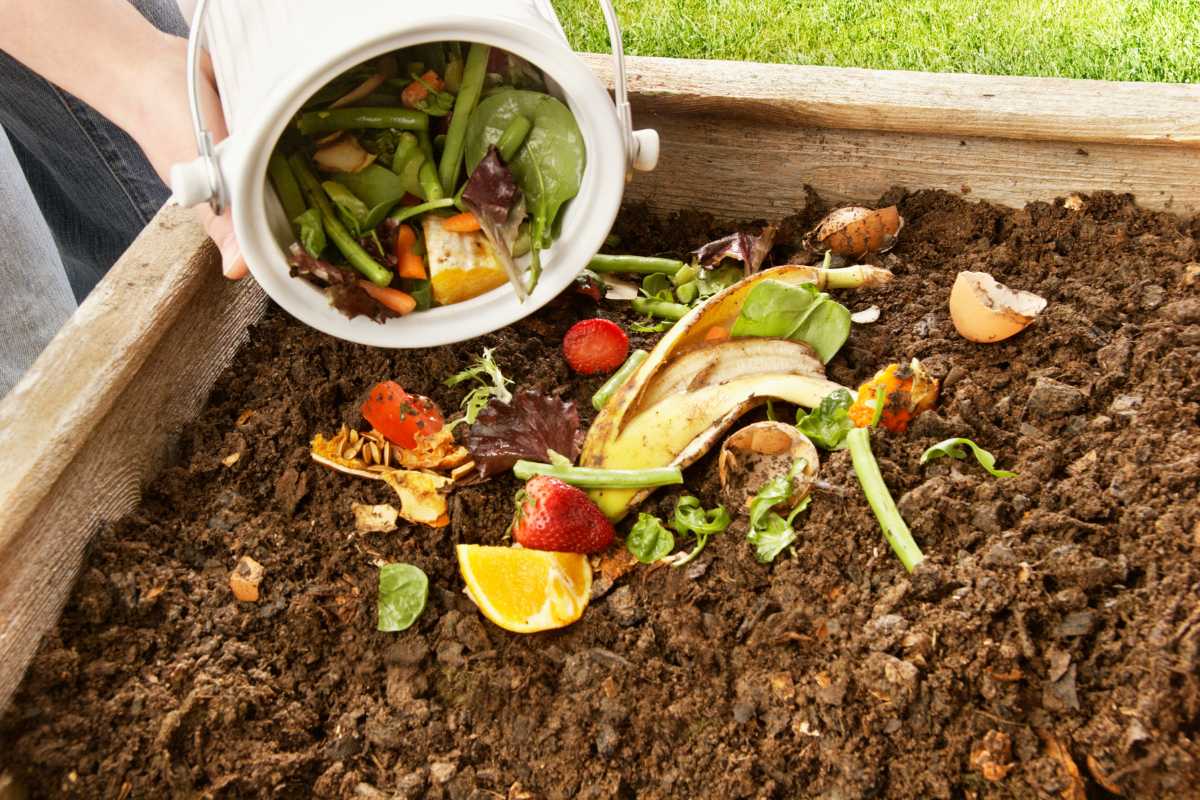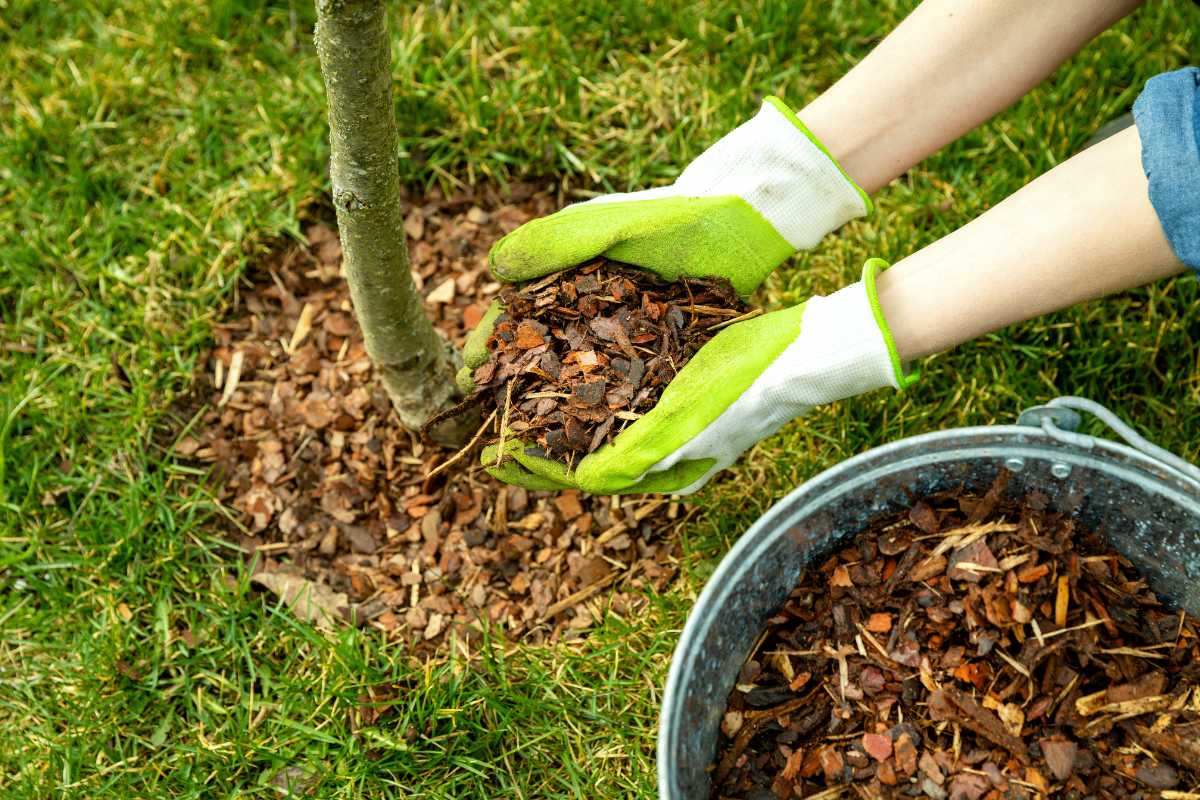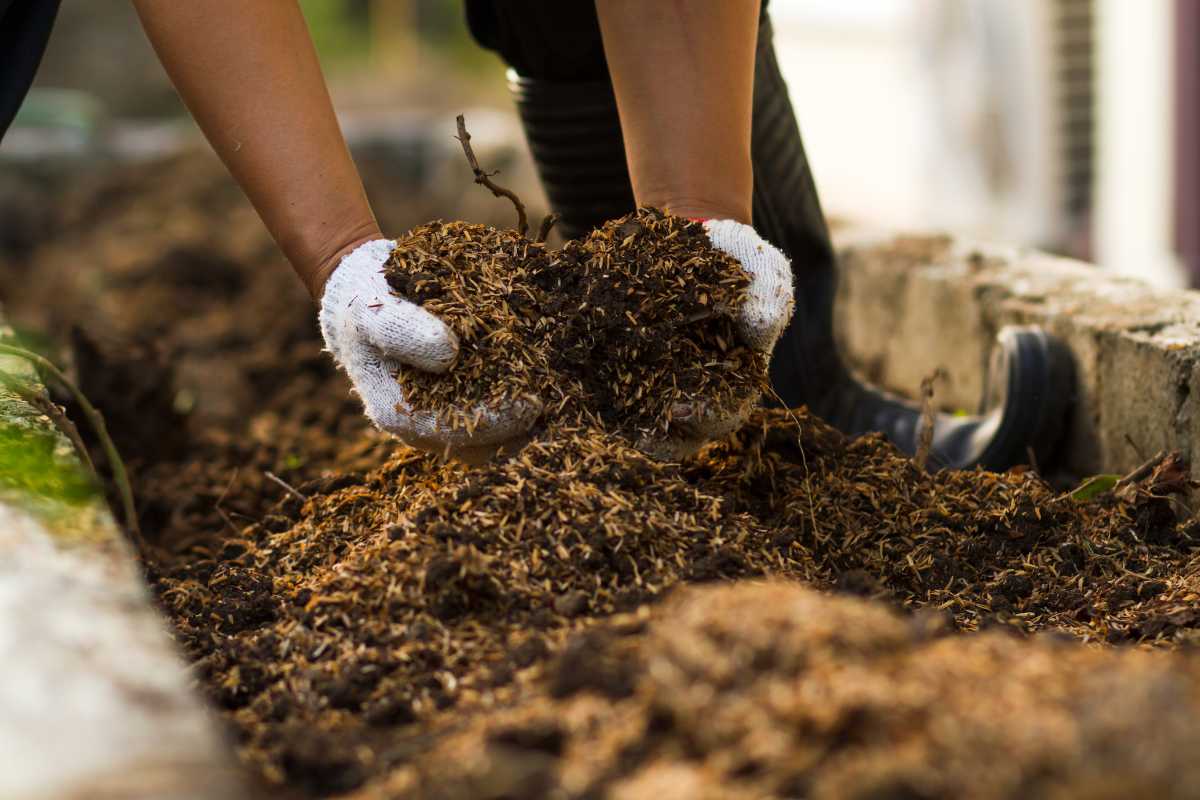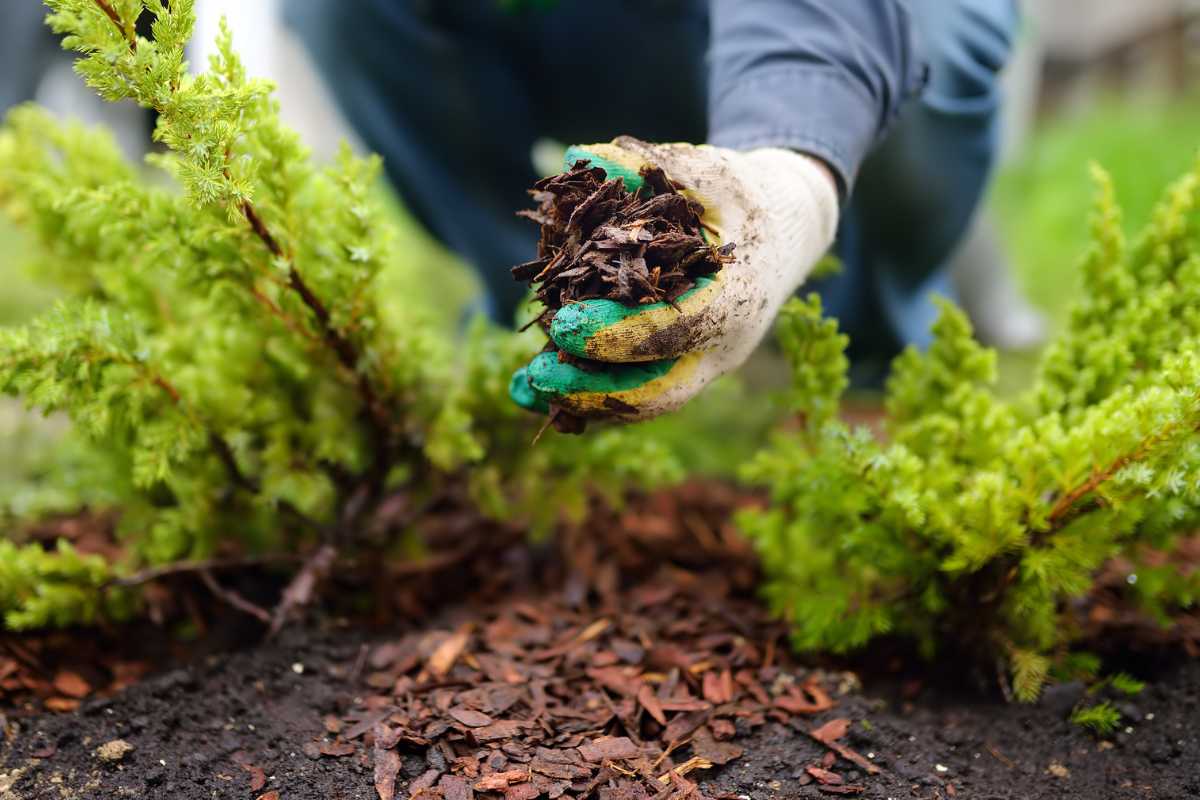Do you compost? Are you using mulch? Why do you choose one over the other?
There are many reasons why you might choose one over the other. But the truth is, both are great products that can help with gardening, landscaping, and lawn care.
This article will compare the difference between compost vs mulch, and tell you how each works and what benefits each has. Then I’ll share when it’s best to use compost and mulch.
Compost vs Mulch Benefits
Compost and mulch can be made up of the same materials or can be vastly different. Depending on the material, the benefits can also vary.
The main benefit of compost is to amend your soil, adding nutrients and increasing the organic content of the ground. Adding compost to your soil will help aeration, moisture retention, and add nutrients.
Depending on the material used, gardeners can also use mulch to add nutrients to the soil. However, its main benefit is suppressing weeds and retaining moisture by covering the soil around the plants.
What is Compost?

Compost is any decomposed organic matter. This organic matter includes food scraps, garden waste, and broken-down cardboard or paper.
If carbon-based materials, such as chipped wood, are mixed in correct quantities with nitrogen-rich materials, like vegetable scraps, it will produce a nutrient-rich soil-like substance called compost.
This rotted organic material can be added to potting mix, dug into your vegetable patch, or used as a mulch.
Learn more in this in-depth Compost Guide.
Benefits of Compost
The main benefit of compost is its nutrient and microbial content. The exact content can vary depending on the materials added to the compost and the method used to compost them.
Compost can be used in various ways, including as an effective soil amendment for any type of soil. Compost can break up clay soil and aid moisture retention in sandy soil.
Compost can help stripped or “dead” soil by increasing nutrients and encouraging beneficial microbes and organisms such as worms.
What is Mulch?

Mulch is any material used to layer on top of the soil to suppress weeds, stop the sun from drying out soil, or as a protective layer from frost for delicate plants.
There are five different categories of mulch.
- Compost Mulch – Compost is used as a mulch when it is spread on top of the soil rather than dug in. You can also use vermicompost and farm animal manure as a compost mulch. Compost mulch also adds nutrients to the soil and is perfect for giving a boost to your trees or bushes.
- Straw and Stubble Mulch – Any kind of straw can be used as a natural mulch. It protects the soil from frost, as well as the heat of the sun. Stubble is the name given to any shredded crop waste used as mulch, including maize and cotton stalks.
- Inorganic Natural Materials – These include pebbles, stone chippings, shingle, or slate. This kind of much is usually the most attractive. However, it won’t add any nutrients to your soil.
- Rubber Mulch – Rubber chippings are also used as mulch and can come in various colors.
- Plastic Mulch – Plastic sheeting or landscape fabric can be used as mulch to keep in soil moisture and suppress weeds.
The type of mulch you choose will depend on how you want to use it. If you want it to suppress weeds and make your garden borders look attractive, then inorganic or rubber mulch will be perfect.
Inorganic mulch won’t add any nutrients to your soil, but it also won’t rot down, so you won’t need to replace it like you would with organic materials like straw or compost.
Plastic sheets will need to be replaced but can be cheap and effective over a large area.
Compost is your best choice as organic mulch if you want to add nutrients. Just layer it on top of the soil in between your plants and water the nutrients in.
Straw mulch can be used to protect delicate plants, such as strawberries, over the winter. It can also be used to protect delicate seedlings from the sun’s heat. Straw mulch will rot down eventually and will need to be replaced.
Learn more in this in-depth Mulch Guide.
Benefits of Mulch
Mulch can cut down your work in the garden. It suppresses weeds, cuts down on maintenance time, and because it helps to stop the soil from drying out, it will reduce the amount of watering you need to do.
Mulch also helps control the soil temperature with layers of grass clippings, shredded leaves, pine needles, and many other options.
Mulch can add nutrients to established trees and bushes, and any plants, including potted plants. It can benefit from a layer of compost spread over their soil.
Mulch can also improve the appearance of your garden if you choose attractive rubber or stone chippings to apply over the ground between your plants.
Compost vs Mulch Uses
Compost can be used as mulch, but not all mulch can be used in the same way as compost. Below I’ve detailed when to use compost and when to use mulch.
When to Use Compost

Compost is used as a soil amendment to improve the soil’s quality and add nutrients. You should use compost when you need to dig in a soil amendment or when you need to give more nutrition to your soil.
Compost can be an effective mulch, although you should only use compost that you are sure won’t contain any dormant seeds.
The most beneficial thing about using compost as mulch is the nutrient content that can be watered into the soil around your plant’s roots.
When to Use Mulch

Mulch is any material spread over the soil for weed suppression and to help the soil’s surface stay moist. Mulch can be used wherever there is bare soil and can be used for decorative purposes or to add nutrients.
Below I’ve listed several areas where mulch can be used.
- Trees and Shrubs – If your established trees or shrubs need a pick-me-up, you can use a layer of compost as a mulch and let the nutrients drain into the soil. Spread compost on the earth to the outer foliage line, as this will give you a good estimate of where the roots are.
- As Garden Borders – You can make your borders neater and more attractive by adding decorative pebbles, stones, rubber chips, or wood chips. Most of these won’t add any nutrients, but they will suppress weeds and keep your borders looking neat and tidy. Wood chipping will add some carbon over time, but it will also need to be replaced periodically.
- Vegetable and Fruit Patches – Plastic sheeting can be an effective and cheap mulch when planting some vegetables.
Lie the plastic sheet over the soil and cut a cross into the sheet where you want to plant. Some sheets are sold with pre-made holes to make it even simpler. The plastic sheets don’t last long, so this may not be the most eco-friendly option.
Compost is also a great mulch for fruit and vegetables, especially when the plants are fruiting and may need an extra nutrient boost. Straw is great for strawberries (hence the name), but it can also be used for other soft fruits like blueberries and raspberries, as well as citrus and apple trees.
Can Compost Be Used as Mulch?
Compost can be used as a very effective mulch. If the compost is 100% seed free, then it can suppress weeds. Seed-free compost can be achieved with sealed composters, hot composters, and most commercially brought compost.
That being said, if seeds find their way into the compost, then weeds will still grow. The most beneficial feature of compost mulch is the nutrients and microorganisms that will keep the soil healthy and feed your plants.
Compost vs Mulch Final Thoughts
Compost and mulch have different uses, and compost can be used as mulch, but not the other way around.
While both can provide benefits to your garden, compost is best suited for soil amendments, while mulch is best suited for weed suppression and moisture retention.
If you’re planning on using mulch, then choose one that has a low nutrient content. This will reduce the risk of overfeeding your plants from other sources of nutrients.
Check out these other related articles to learn more:

